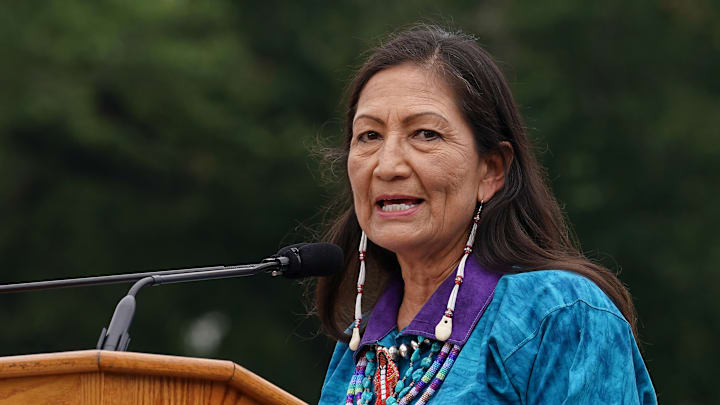For most of 2022, the United States Department of the Interior has made an effort to radically revise the names of more than 600 federal sites. The reason? The names made use of the word squaw, long considered a pejorative in the Native American community.
Now, that task is complete.
The project was championed by Deb Haaland, the Interior Department secretary and the first Native American to serve in the position. Haaland, who formally declared “squaw” a derogatory term in November 2021, organized a 13-member task force to work with Tribal representatives and officials to rename the federal geographic sites.
“Words matter, particularly in our work to make our nation’s public lands and waters accessible and welcoming to people of all backgrounds,” Haaland said in a February 2022 statement. “Consideration of these replacements is a big step forward in our efforts to remove derogatory terms whose expiration dates are long overdue.”
In a comprehensive list of the name changes, Arizona’s Squaw Canyon became Red Rock Canyon; in California, Squaw Creek is now Grasshopper Creek; New Mexico’s Squaw Brook is now Porter Brook.
The casual use of “squaw” and its attachment to federal lands has long been controversial, with the Board on Geographic Names receiving proposals to rename sites for the past two decades.
“Squaw” likely has roots in the Algonquian language and originally meant “woman.” But it was co-opted by colonists and recontextualized as a derogatory slur. According to Haaland, the term was used to dismiss and dehumanize Indigenous women who had been sexually assaulted.
In a statement issued on September 8, 2022, the Department of the Interior announced the changes for nearly 650 sites were effective immediately. Laws have also been passed at the state level to address the slur for nonfederal sites.
[h/t Smithsonian]
